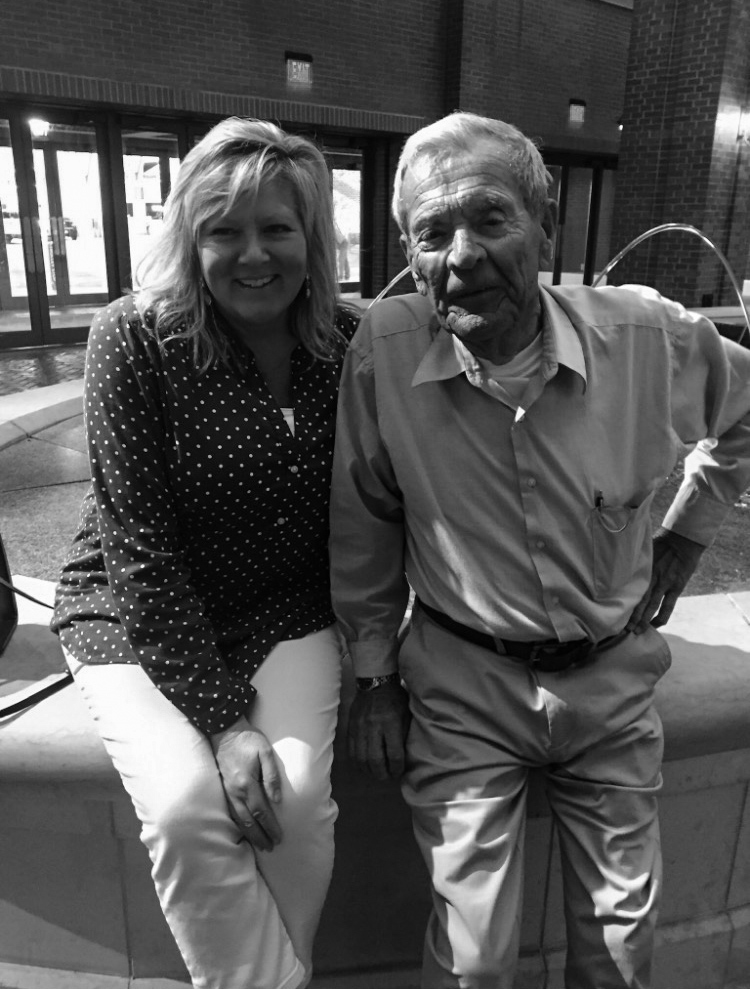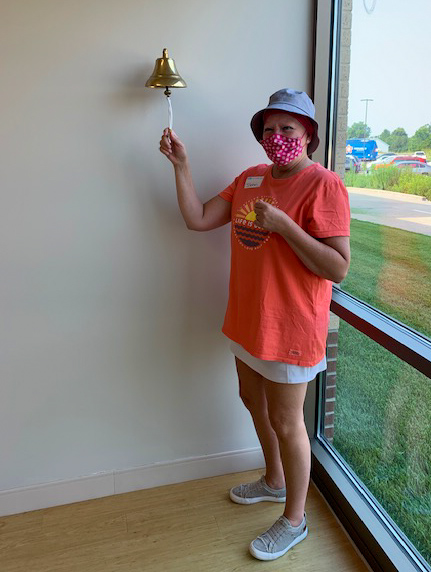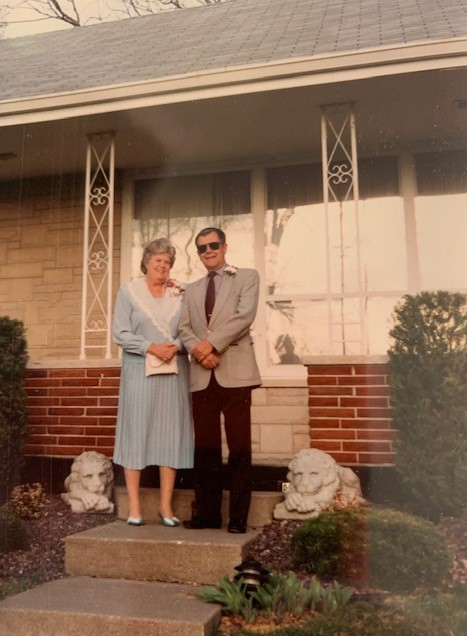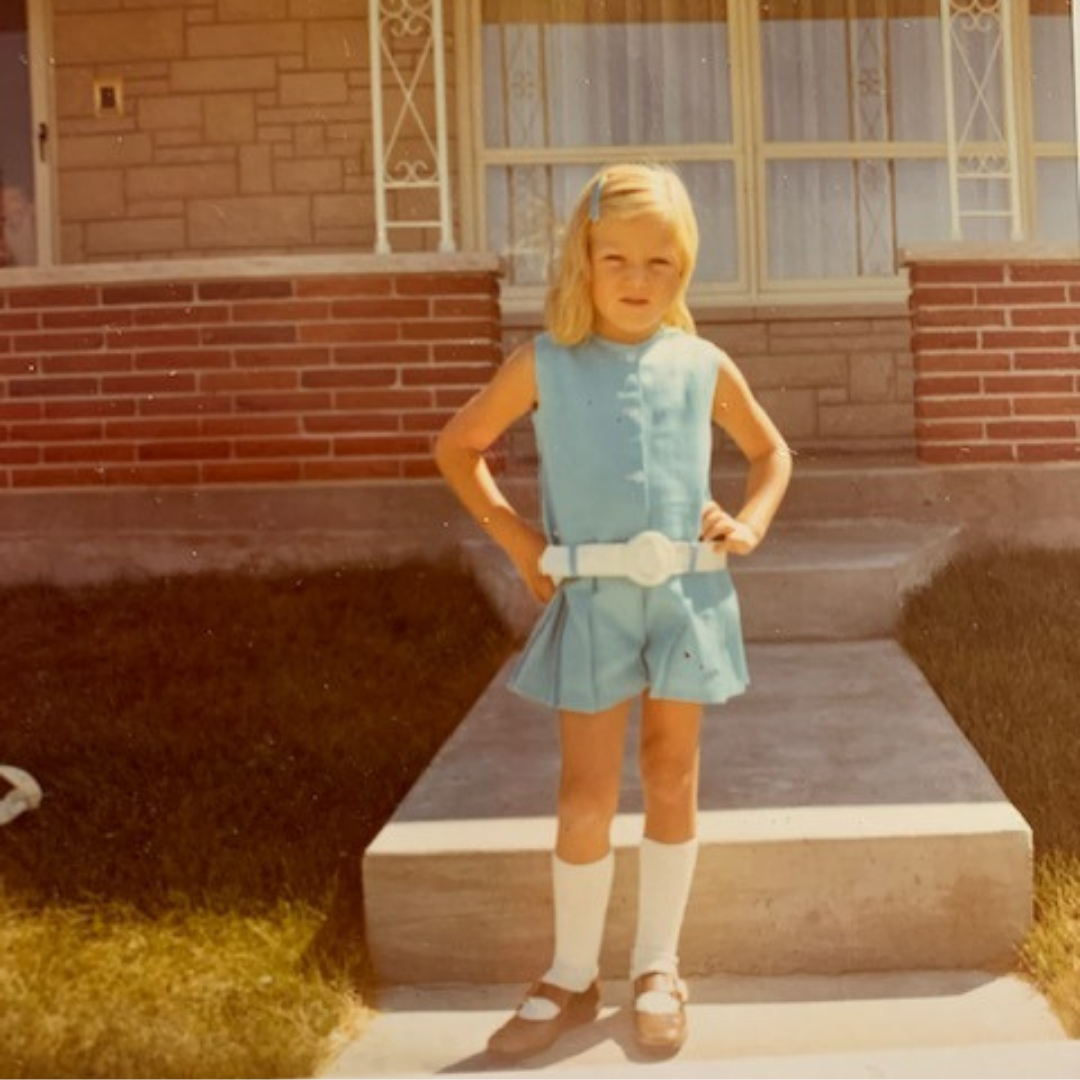A Roller Coaster Named Grief
- Written by Joyce Romine
 I’ve always heard about the stages of grief but honestly didn’t pay much attention to them. Not that I’ve had a life untouched by loss and difficult times. It’s just that I lumped grief and sadness together as synonyms. I didn’t give the symptoms of grief the recognition they deserve.
I’ve always heard about the stages of grief but honestly didn’t pay much attention to them. Not that I’ve had a life untouched by loss and difficult times. It’s just that I lumped grief and sadness together as synonyms. I didn’t give the symptoms of grief the recognition they deserve.
Then the pandemic hit. I’m paying attention now.
The Hill Before the Drop
Grief holds a brimming bucket of emotions and symptoms that go far beyond sad feelings. Grief can trigger anger, irritability, fear, and shock among others.
Various psychology systems identify anywhere from five to 12 stages of grief. According to the Kubler-Ross model, common stages of grief are denial, anger, bargaining, depression, and acceptance. Some experts say it’s necessary to go through at least some of the stages of grief to heal. But everyone experiences grief differently. You may skip some stages or bounce around between stages. And grief doesn’t follow a schedule.
Facing the Gauntlet of 2020
COVID-19 burst into our lives in 2020 and turned everything upside down. The hardest part of the pandemic last year was being separated from my elderly father who lived alone two and a half hours away.
When my dad’s isolation and loneliness became overwhelming, I cautiously visited, fearing I would be the one to give him the virus since vaccines weren’t available. For him, however, the companionship outweighed the risk – a dilemma many families faced last year. At 86, he was lonely and wanted to see me.
It took another crisis for us to spend any significant time together. Later that year my dad landed in the hospital twice within three months. The second time doctors weren’t sure he would survive. His heart was failing. My siblings and I said our goodbyes and began to grieve.
Amazingly, 48 hours later he pulled through, full of sass, and was moved to a rehab unit before going home a week later. It was clear though he was living on borrowed time and I feared the inevitable loss.
Then in December 2020, I was diagnosed with breast cancer. My mom had died four years before of the same horrible disease. She and I were close, and I still missed her which made the diagnosis even more difficult.
Highs and Lows of 2021
This can’t be happening. I live a healthy lifestyle, don’t I? My grief took on a new form in 2021 as I faced surgery, chemotherapy, and radiation treatments. It started with denial. Everything seemed surreal. I mourned the loss of the “old me.” I missed feeling normal. I would get irritated when it seemed my husband and family didn’t understand my emotions. I felt alone and feared the future.
During chemo, I also felt immense sadness that my treatments prevented me from spending more time with my dad just as the world was opening back up.
When I finished chemo at the end of May, I called my dad. He was elated I was done with treatment. We made plans to take a riverboat cruise together with family for Father’s Day.
Three days later he suddenly died on June 5.
Why didn’t I visit him more on days I felt good between chemo cycles? At first, my guilt was overwhelming. I regretted the questions I never asked my dad and the conversations we didn’t get to have. And I had wanted him to see for himself that I was ok after treatment.
My dad’s funeral was two weeks after my last chemo. The funeral and days surrounding the service were a blur. I was running on adrenalin and immersed myself in busyness. Denial was my retreat.
But reality has a way of catching up with you. My daily radiation treatments started two weeks after the memorial. I missed his concern and frequent reminders of how tough I was “because I was his daughter.” But I didn’t feel tough. I felt lost.
In the weeks after the funeral, we cleaned out my parent’s house—my childhood home— and prepared to sell it. My five siblings and I divided up sentimental and practical items. Yet it all felt icky. As we packed up our parents’ lives, my dad would have hated us going through his belongings. And my mom would have scolded us for the mess we made as we did it.
Visiting my childhood home had always comforted me with its loving familiarity and happy memories. But as boxes, furniture, and family history were hauled out the door, the closing of this chapter left me feeling empty.
Losing both my dad and his home made me feel groundless. It was the end of an era. I couldn’t go back again. I was no longer a daughter. As a full-grown adult, I felt orphaned. And then I felt pathetic for feeling that way.
 Experiencing the Ups and Downs and In-Betweens
Experiencing the Ups and Downs and In-Betweens
In 2021, I lost my health, my hair, and my confidence in the future. Before cancer, I was always a positive, pull-yourself-up-by-your-bootstraps kind of person. Now I struggle to balance positivity and strength with the sadness and anger I feel. The emotional ups and downs that grief brings are exhausting.
Some days, I have it all together. Long walks help me decompress and ultimately reenergize. But I’ve discovered grief leaks like a sieve at unexpected times.
I was driving recently and saw a road sign placed in memory of a loved one. It said, “We miss you dearly.” That sweet, simple sentiment caught me off guard and I burst into tears.
I realized I was not only grieving my mom and dad, but also grieving my own mortality—how my own kids and husband might lose me. While I have a good prognosis, the future doesn’t seem as trustworthy anymore.
As the weeks go by, I have begun to recognize the full spectrum of grief. It’s comforting to know my emotions are normal and that I’m turning a corner. When I start to dwell on recent losses, it has become easier to remember all the positive forces in my life. I’m beginning to accept the changes and move ahead feeling stronger—even if grief is still a part of my story.
My friends and I went out to dinner recently and as we caught up, I got a little teary-eyed. One wise friend reminded me to let the tears flow and get it out. That it is okay to not be okay, to let grief take its course.
National Grief Day
August 30 is National Grief Day. While the grief process takes more than one day, it is a good reminder to note the symptoms of grief and find ways to cope with them. You can always contact Mental Health America of Eastern Missouri at 314.773.1399 or explore their online resources at mha-em.org.
 Joyce is a St. Louis based writer, marketing communications consultant, mom of four, wife, and general chaos manager.
Joyce is a St. Louis based writer, marketing communications consultant, mom of four, wife, and general chaos manager.






















